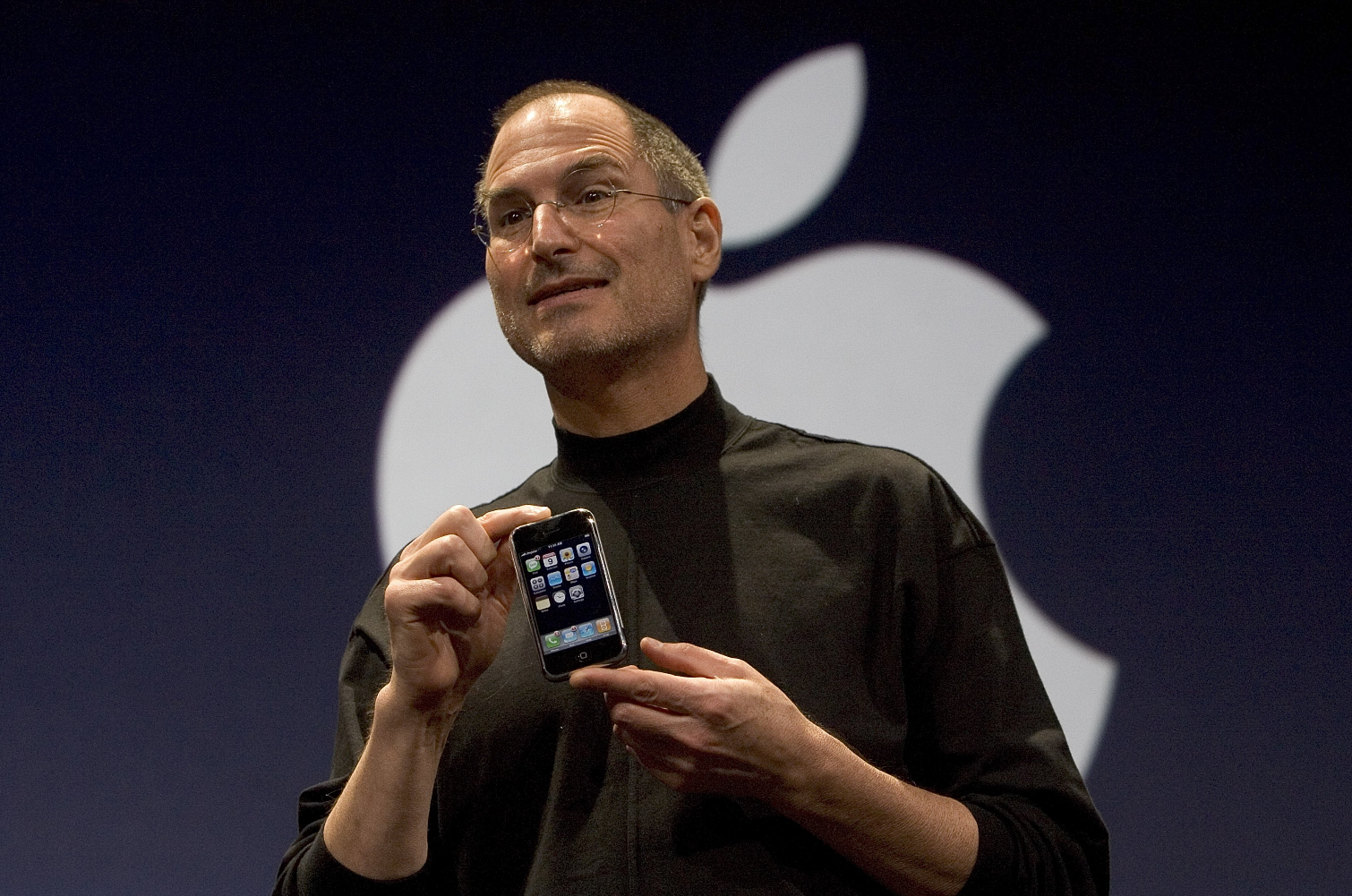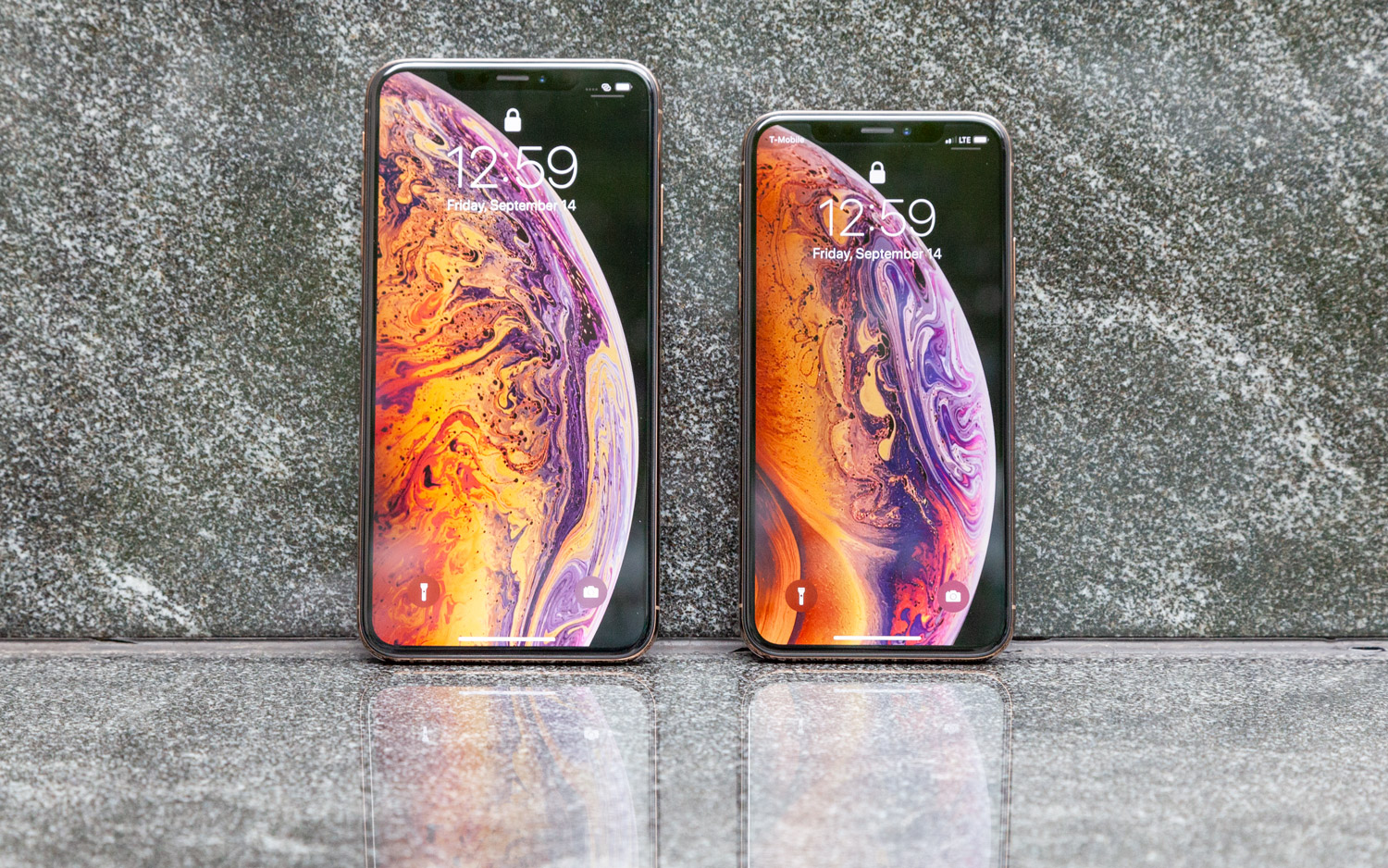The Ride Is Over: Apple Faces the End of the iPhone Boom
Ten years after smartphones burst onto the scene, the boom times are over. Here’s how Apple will cope with slower iPhone sales.
We live in the age of the smartphone. Over the past decade-plus, billions of people around the world have come to rely on powerful computers that fit in their pocket and give them constant access to a global high-speed network of information. I believe it's a revolutionary moment in human history.

But while we will spend the rest of our lives in the world of the smartphone, that heady first decade of expansion — from the day the first iPhone shipped in mid-2007 — is over. And all the companies that capitalized on that decade — most notably Apple and Samsung — are still coming to grips with the next (mostly boring) phase in the life of the smartphone industry.
Apple's revelation this week that it's going to generate several billion fewer dollars in revenue than it expected due to shortfalls in iPhone sales has gotten everyone's attention. But it's just one part of a longer story of the aging of this market. That moment when the world rushes in to a new market is breathtaking, but once the world arrives, the story is over. Phone makers like Apple try to keep the massive growth rates going as long as they can by finding unexplored markets, which is why Apple has invested so much effort in China.
MORE: 5 Things We Want From the iPhone This Year
Wall Street seems to be panicking about Apple, but that's because Wall Street is focused on growth. Let's keep some perspective here: Apple is one of the most profitable companies in the world and its revised-down quarter will still be its second-largest revenue quarter of its 43-year existence.
Apple is still a revenue- and profit-generating machine. But its biggest driver of growth, the iPhone, is no longer growing. Unless Apple finds an unexplored smartphone market on the moon, it will have to seek growth elsewhere and rely on other products to provide growth.
The writing has been on the wall for some time. Back in January 2016, Apple began calling out the growth of its services revenue line every time it talked about financial results. The message to Wall Street was clear: There's a new growth area for Apple, and it's selling services like iCloud and Apple Music to Apple's existing ecosystem. It was Apple's admission that it was seeking growth elsewhere. The iPhone stalling out isn't a surprise.
Apple saw it coming
The last two years, Apple has completely changed how it sells iPhones. It's hard not to look at those moves as an attempt by Apple to adjust to a largely sated smartphone market. In 2017, it released a $999 iPhone X and raised the prices of its more normal new products, the iPhone 8 and 8 Plus. In 2018, it removed the iPhone X from its offerings rather than sell it at a discount, and introduced two new large phones, the iPhone XS Max at $1,099 and the iPhone XR at $749.
A more conservative company might have kept going with its old, tried-and-true product line and sales strategy, but Apple seems to have been well aware that the old strategy wasn't going to work anymore. Raising prices allowed Apple to show revenue growth even as unit sales flattened — and late last year Apple announced it wouldn't even report unit sales publicly anymore, so it could focus purely on that revenue growth.
The general perception among the people I talk to is that Apple's products, including iPhones, are just too expensive. While Apple's restatement of its revenue guidance leans hard into the faltering Chinese economy, it doesn't stop there, highlighting other forms of iPhone weakness, which I think is telling. If this was purely a Chinese issue, Apple would say so. Instead, it seems to me that China is a major issue, but it somewhat cloaks the iPhone's other weaknesses.
MORE: The One iPhone Trick Everyone Needs to Know
Where does Apple go from here?
Ultimately, Apple's job is to make the most money it can. If it can raise prices and increase revenues, it should raise prices. But if it pushes those prices too far, revenue will drop. Apple's moves in the last two years suggest the company is doing a lot of experimentation with its most profitable product, hoping to find the sweet spot of the market. I'm not sure it's found it yet.

In its statement, Apple made a point of citing iPhone battery replacement program, which came about as a reaction to a series of stories revealing that Apple degraded iPhone performance in order to keep phones with old batteries up and running. It's possible that Apple lost a lot of money on that program — and I've talked to several Apple retail employees who suggest that it heavily impacted the business of Apple stores all year — but the impact of the story goes beyond just the cost of the program.
MORE: Best iPhone XS and XS Max Deals
In an era where American wireless carriers no longer sell discounted phones in exchange for long contracts, consumers face major sticker shock when they buy a phone. Even though smartphones were never cheap, they seemed cheap — and now they don't. As a result, people are holding on to their phones even longer than before. Apple's battery replacement program taught millions of people that when their iPhone gets old and slow, they can pay less than $100 to get a new battery that will take it back to its original speed, rather than spending up to $1,000 for a new phone. This will lengthen that buying cycle even more.
So if you're Apple, what do you do next? At Apple's developer conference last June, company execs suggested that they're shifting to a model that emphasizes the long-term value of iPhones. That's the sound of a company adapting to the reality of a world where the average smartphone is three or four years old, not one or two.
You can also expect to see Apple lean into its existing programs that make buying a new iPhone seem more affordable. For a few years now, Apple has offered upgrade plans as well as payment plans, both of which allow consumers to spend a monthly fee on a phone rather than a large amount of cash up front. And this December, Apple's home page was taken over by an offer to upgrade to an iPhone XR for a low price — so long as you traded in your old phone.
Payment plans and trade-ins are going to feel new and strange for some smartphone buyers, but it doesn't seem that different from car ownership when you think about it. I know people who buy a new car and drive it into the ground, and I know people who lease cars and get a new one every couple of years.
The iPhone market is going to be like that now — expensive devices that you can buy in a few different ways, including buying refurbished models at discounts. This iPhone was owned by a little old lady who only took it to church on Sundays. And Apple Store employees are going to be well trained in auto-dealership techniques, asking what they can do to get you to walk out of the store with a new iPhone today.
The road ahead for Apple
In the end, Apple's going to be making billions of dollars on the iPhone for years to come. It will continue to push smartphone tech forward, as will Samsung and Google and other players. Being a major force in the smartphone market is an annuity that will pay off for years to come, letting those companies all fund research and development in whatever the next big product category might be. The cycle begins again.
But if you are expecting Apple, or anyone else, to come up with a new product category of the size and world-changing scope of the smartphone, I wouldn't hold my breath. This feels like a once-in-a-lifetime ride. And the ride is over.
Sign up to get the BEST of Tom's Guide direct to your inbox.
Get instant access to breaking news, the hottest reviews, great deals and helpful tips.
Jason Snell was lead editor of Macworld for more than a decade and still contributes a weekly column there. He's currently running the Six Colors blog, which covers all of Apple's doings, and he's the creative force behind The Incomparable, a weekly pop culture podcast and network of related shows.
